Humanitarian Summit: Human displacement in the context of extreme weather events and climate change
15 June 2022, 10:00 am–3:30 pm
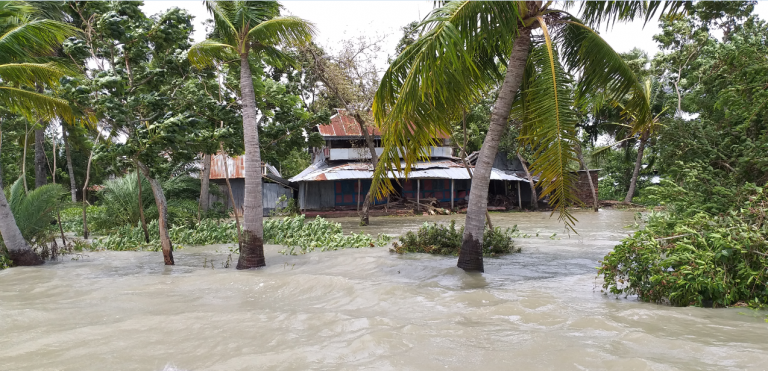
How do extreme weather events and human-caused climate change affect disaster displacement and human migration decisions? The UCL Humanitarian Summit will bring together scientists, practitioners and policy-makers to consider the impacts and seek new ways forward.
This event is free.
Event Information
Open to
- All
Availability
- Yes
Cost
- Free
Organiser
-
Dr Bayes Ahmed and Professor Ilan Kelman – UCL Institute for Risk and Disaster Reduction
Location
-
Roberts Building G06 Sir Ambrose Fleming Lecture Theatre and South CloistersTorrington PlaceLondonWC1E 7JEUnited Kingdom
The United Nations Office for Disaster Risk Reduction (UNDRR) and Intergovernmental Panel on Climate Change (IPCC) recognised climate change as a potent driver of involuntary migration and disaster displacement as a tremendous humanitarian challenge of the 21st century.
The IPCC WGII Sixth Assessment Report (2022) highlights that climate and weather extremes are increasingly driving displacement in all regions, mainly where climate hazards interact with high vulnerability and low adaptive capacity. This trend of human displacement will increase with the intensification of heavy precipitation and associated flooding, tropical cyclones, drought and, increasingly, sea-level rise.
Likewise, the Groundswell Part-2 report (2021) estimates that as many as 216 million people could move within their own countries due to slow-onset climate change impacts by 2050. In addition, the Internal Displacement Monitoring Centre (IDMC) warns that displacement by disasters is regularly reaching around 25 million people each year, which is three times higher than people displaced by conflicts and violence. In contrast, even a much higher number of people are trapped in the climatic hotspots making them significantly vulnerable to continuing poverty, land and water degradation, loss of livelihoods and ecosystems, food insecurity, health hazards and increased inequality.
Climate change is contributing to humanitarian crises. Against this background, the one-day, in-person event will provide stimulating talks, interactive discussions and networking opportunities on the impacts of extreme weather events and human-caused climate change on disaster displacement and non-migration.
We aim to establish a globally unique and pioneering research hub in collaboration with the Internal Displacement Monitoring Centre (IDMC), the leading organisation in this arena. The proposed new collaboration, UCL-IDMC Disaster Displacement Research Hub, will be international, interdisciplinary and ground-breaking as it focuses on the complex nexus between climate-induced migration, disaster risk reduction and sustainable development.
Programme
10:00–11:00: UCL-IDMC Disaster Displacement Research Hub inauguration
- 10:00–10:10: Welcome by Dr Bayes Ahmed
- 10:10–10:20: Inauguration speech – Prof Peter Sammonds, UCL IRDR
- 10:20–10:40: Inauguration speech – Dr Bina Desai, IDMC
- 10:40–11:00: Keynote speech – Atle Solberg, Head of Secretariat, Platform on Disaster Displacement
11.00–12:30: Panel 1 – The emerging field of climate mobility [Moderator: Dr Bayes Ahmed]
12:30–14:00: Lunch and networking break
14:00–15:30: Panel 2 – Climate change, conflict, and migration [Moderator: Prof Ilan Kelman]
15:30–16:30: Tea and coffee reception in the South Cloisters
Confirmed speakers
Inauguration speaker
- Dr Bina Desai, Head of Programmes at the Internal Displacement Monitoring Centre (IDMC)
- Bina Desai oversees the Internal Displacement Monitoring Centre’s programme work, including global monitoring and reporting, the thematic research agenda, and data management and analysis. She previously worked for the German Ministry for Development, the Aga Khan Development Network, Christian Aid/DFID, and the United Nations Office for Disaster Risk Reduction (UNDRR). From 2010 to 2017 she served as UNDRR’s Policy Analyst, co-authoring and leading the production of the United Nation’s Global Assessment Reports on Disaster Risk Reduction (GAR). Bina holds a PhD in Social Anthropology from the School of Oriental and African Studies in London, and an MSc in Sociology and Economics, and has a strong interest in climate and disaster risk reduction, urban change and development economics.
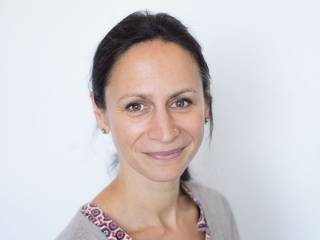
Keynote
- Atle Solberg, Head of Secretariat, Platform on Disaster Displacement
- Atle Solberg is a political scientist from Norway and he is currently the Head of the Secretariat of the Platform on Disaster Displacement. He was the head of the Nansen Initiative Secretariat, the predecessor to the Platform on Disaster Displacement, from 2012 to 2015. His background is primarily from international humanitarian work and from working in the context of displacement (both in conflict and natural hazard situations). He has worked for the United Nations High Commissioner for Refugees (UNHCR) and UN OCHA in Switzerland, the Balkans and in Central America, and the Norwegian Refugee Council in the Balkans, Indonesia and Colombia. He has research and teaching experience from the University of Bergen on humanitarian issues as well as on the protection of unaccompanied minors. He has undertaken an evaluation of humanitarian aid and worked as a consultant both with a focus on Norway as well as on the post-conflict recovery situation in the Balkans and Central America.
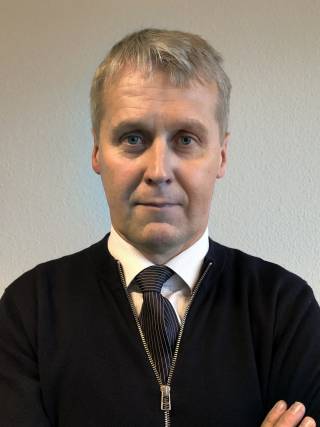
Panel 1: The emerging field of climate mobility
- Dr Bishawjit Mallick, Utrecht University, Netherlands
- Bishawjit Mallick is Associate Professor of Climate Change and International Development Studies at the Human Geography and Spatial Planning Department of Utrecht University, Netherlands. Before joining Utrecht University, he worked as Marie Skłodowska-Curie Global Fellow at the Institute of Behavioral Science (IBS) of the University of Colorado Boulder, USA, and TU Dresden, Germany.
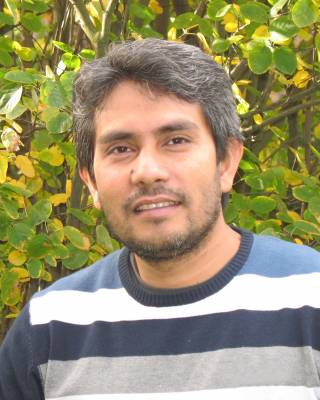
His background includes research in the field of intergenerational perspectives of environmental (non-)migration, refugee and rehabilitation, disaster risk reduction (DRR), climate culture, vulnerability and resilience, Agent-Based Models, and social science research methodology. His research focuses on the intergenerational perspectives and historical grounding of non-migration (the reasons why people voluntarily remain in place through generations; how the social, environmental and political regime contributes to staying put). He employs qualitative and quantitative social research methods and geographic information systems in his ongoing research. He has published over 25 peer-reviewed manuscripts and book chapters.
Dr Mallick is an associate editor of the journal Springer Nature Social Sciences and Springer Nature Business and Economics, Frontiers in Climate. He is the scientific coordinator of the ‘Environmental Non-Migration Network (EnNoMig Network)’, and the founding chairperson of the Coastal Research Center (CRC) in Bangladesh. He can be reached at the email: b.mallick@uu.nl
- Saleemul Huq, Director of the International Centre for Climate Change and Development
(ICCCAD) - Prof. Saleemul Huq is the Director of the International Centre for Climate Change and Development (ICCCAD) and Professor at the Independent University Bangladesh (IUB) as well as an Associate of the International Institute on Environment and Development (IIED) in the United Kingdom. In addition, he is the Chair of the Expert Advisory Group for the Climate Vulnerable Forum (CVF) and also Senior Adviser on Locally Led Adaptation with Global Centre on Adaptation (GCA) headquartered in the Netherlands.
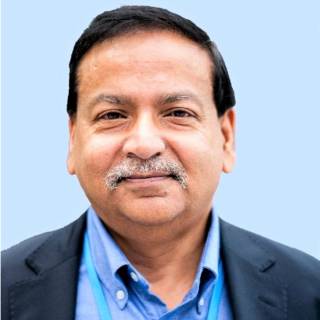
He is an expert in adaptation to climate change in the most vulnerable developing countries and has been a lead author of the third, fourth and fifth assessment reports of the Intergovernmental Panel on Climate Change (IPCC) and he also advises the Least Developed Countries (LDC) group in the United Nations Framework Convention on Climate Change (UNFCCC). In addition, he is affiliated with the UN Food System Summit for 2021 as co-chair of the Action Track 5 on Building Resilience to Vulnerabilities, Shocks & Stress.He has published hundreds of scientific as well as popular articles and was recognized as one of the top twenty global influencers on climate change policy in 2019 and the top scientist from Bangladesh on climate change science. Recently he has been appointed Officer of the Order of the British Empire (OBE) in the 2022 New Year Honours for services to combating international climate change.
- Christelle Cazabat, Research Manager at the Internal Displacement Monitoring Centre (IDMC)
- Christelle Cazabat is the Research Manager at the Internal Displacement Monitoring Centre (IDMC). She oversees the team’s engagement in different research programmes, including on internal displacement in the context of climate change and disasters, urban displacement, the linkages between internal and cross-border displacement and the socioeconomic impacts of internal displacement. She has been working in international development since 2007 for the French Embassies in the Dominican Republic and in Cameroon, the United Nations Population Fund’s country office in Cameroon, the World Health Organization’s Eastern Mediterranean regional office in Egypt and headquarters in Geneva, and the Human Development Report Office of the United Nations Development Programme in New York. She holds a PhD from the University of the Sorbonne (Paris) on the role of civil society in development, for which she conducted 18 months of research in Cameroon.
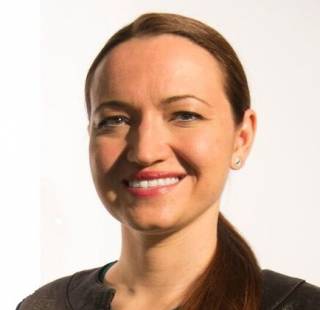
Panel 2: Climate change, conflict, and migration
- Caroline Voûte, Health Policy / Climate and Environmental Health Advisor
- Caroline has a background in Social Justice and a Master’s in Public Health from Emory University. She has been working in medico-humanitarian crises with MSF, WHO, CDC, and UNHCR in a variety of countries since 2008 (Malawi, South Africa, Haiti, Chad, Tunisia, Libya, DRC, Sudan, CAR, Syria, Iraq, Liberia, Zambia, Mozambique, Tanzania/Zanzibar, Ethiopia, Bangladesh). In 2010 she joined MSF working in a variety of roles from Health Promotion Specialist to Country Director, until starting work in London in 2018 as MSF UK’s Health Policy Advisor, focused on analysing global health issues that affect patients and MSF programmes. Since 2020, she has been responsible for the development and coordination of MSF strategy around climate, environment, and health (CEH) for MSF UK as well as for MSF’s Operational Centre in Amsterdam. Helping MSF country teams to develop and implement CEH activities as part of medical-humanitarian operations.
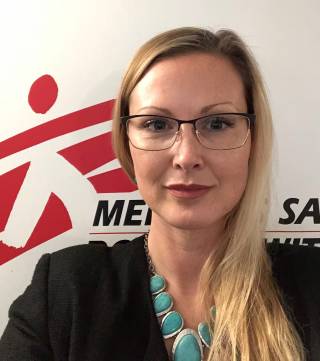
- Cláudia Santos, PhD candidate at the Institute of Social Sciences, University of Lisbon
- Cláudia’s research interests focus on the complex systems in which the interconnections between climate change and (non-)migration occur. She conducts field research in Guinea-Bissau on how communities perceive climate change, how it affects livelihoods and influences decisions to move or stay put. Other interests include social development, state politics, disaster response and disaster risk reduction, particularly community-led action, resistance and solidarity.
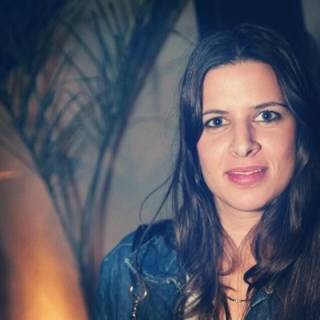
- Calum T.M. Nicholson, Fellow of the Danube Institute and Mathias Corvinus Collegium
- Calum holds a BA in Social Anthropology from Trinity College, Cambridge, an MPhil in Migration Studies from St Antony’s College, Oxford, and a PhD in Human Geography. He teaches courses on international development, international migration, and the impact of social media at the Institute of Continuing Education, University of Cambridge.
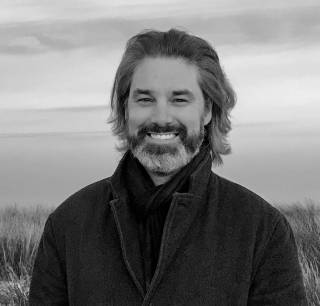
Tag us on social media: #UCLHS22
Please note that refreshments are not provided at this event, until the reception at 3.30pm, but there are plenty of options locally, including on campus at UCL. This event will be livestreamed and available on the IRDR YouTube channel (no need to register).
 Close
Close

